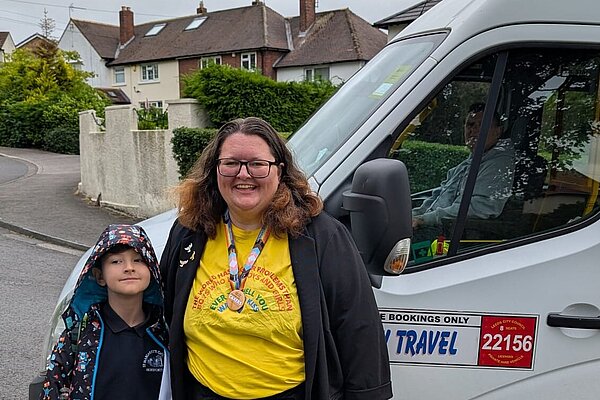
Cuts to Post‑16 SEND Transport: We want to hear from you…have your say
Many young people with special educational needs and disabilities (SEND) rely on safe, reliable, and affordable transport to access school, college, or training after age 16. Their needs do not suddenly change once they reach Year 12 — yet Leeds City Council’s decision to reduce this support risks leaving families with impossible choices. Without accessible travel, some students could miss out entirely on education, independence, and vital social opportunities.
We are calling all young disabled people affected, their parents, carers, students, and education professionals to share their stories.
How will these cuts affect daily life? Will they place greater financial or emotional strain on your family? Have you had to change education plans because of transport issues?
Your voices can help push for a fairer, more inclusive policy that recognises transport as an essential part of education, not a luxury.
What the Council Has Said
Cllr Helen Hayden, Executive Member for Children and Families, has described the current system as “not sustainable given financial challenges and rising demand. This frames an issue of rights and inclusion as one of cost. For many young people, independent travel is simply not safe due to complex needs. They may require specialist supervision, adapted vehicles, or travel buddies — and removing this support ignores safeguarding realities, potentially closing the door to education altogether.
The 2025 Policy Changes
Under the Leeds Children and Young People’s Transport Policy for 2025/26, statutory free transport applies only to compulsory school age. Post‑16 and post‑19 SEND students will receive support only if they meet strict eligibility criteria. Discretionary help is reserved for “exceptional circumstances” and the type of assistance will be decided by the council based on assessed needs. Eligibility will be reviewed annually, leaving families in a constant state of uncertainty.
National Loophole and Legal Concerns
A loophole in the law allows councils to withdraw transport support after age 16, creating a postcode lottery where access to education depends on where you live, not what you need. The Local Government & Social Care Ombudsman (LGO) has already ruled against “blanket” transport decisions in other councils, including Derby.
It is absolutely unacceptable that young people with additional needs are being effectively denied their right to education because of transport policy failings… The loophole… must be closed — and urgently.
Helen Page, Guiseley and Rawdon Liberal Democrats
The Liberal Democrat Position
Nationally, Munira Wilson MP has called for statutory guidance and funding to ensure appropriate transport for all SEND learners up to the age of 25. Locally, Liberal Democrat campaigners are urging Leeds City Council to: review its policy in light of LGO rulings; clarify “exceptional circumstances” criteria; assess applications holistically; ensure timely appeals and accessible communication; and lead the push for national reform.
Voices from the Community
The Save Our School Transport campaign — made up of parents, carers, and SEND advocates — recently took their case directly to Leeds City Council.
Parent Ailith Harley‑Roberts told councillors: “Their needs don’t change when they turn 16… this policy is going to adversely impact on a really vulnerable group of young people and their families who are already struggling.”
Testimonies highlighted severe disabilities and unsafe walking routes to school, personal travel allowances that fail to cover real costs, and parents being forced to give up work or reduce hours. Campaigners warn these changes will increase the risk of isolation and NEET (Not in Education, Employment, or Training) status. National reports such as Transport Matters (Contact) and State of Post‑16 Transport (Natspec) show Leeds is not alone in facing this crisis.
The Real‑World Impacts
Cuts to post‑16 SEND transport affect every layer of life:
- Education – reduced attendance, fewer options for appropriate schools or courses, and disrupted learning.
- Families – job losses or reduced hours for carers, increased stress, and large out‑of‑pocket costs.
- Wellbeing – isolation from peers, loss of independence‑building opportunities, and decreased confidence.
- Communities – lost skills, increased demand on social services, and widening inequality.

Call to Action
We are calling all young disabled people affected, their parents, carers, students, and education professionals to share their stories.
How will these cuts affect daily life? Will they place greater financial or emotional strain on your family? Have you had to change education plans because of transport issues? Your voices can help push for a fairer, more inclusive policy that recognises transport as an essential part of education, not a luxury.